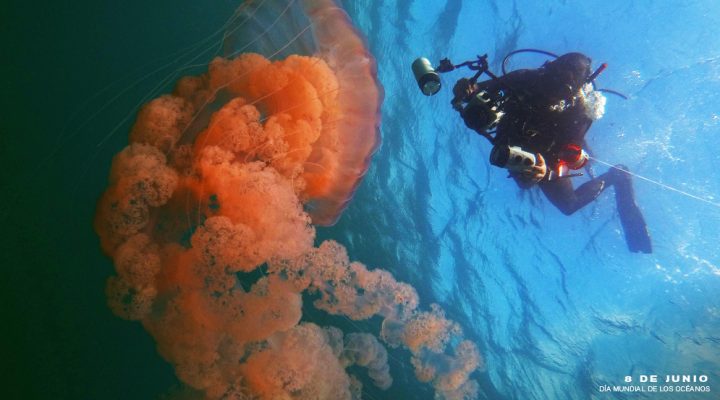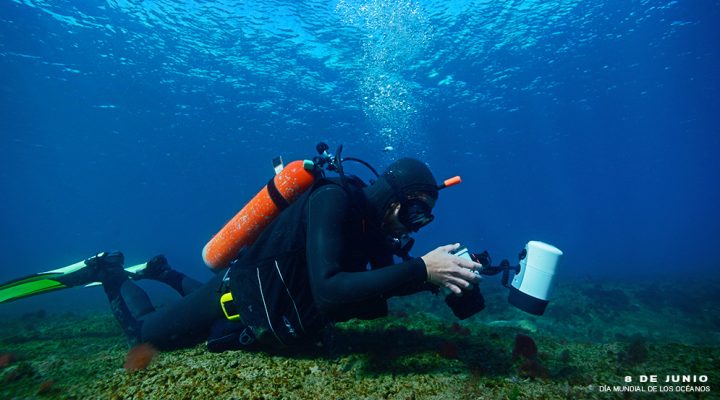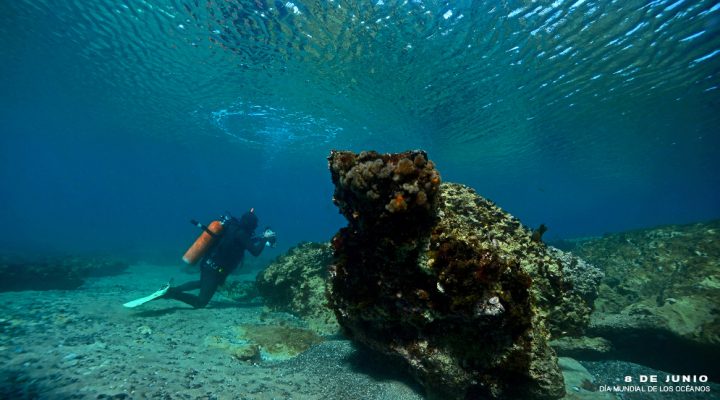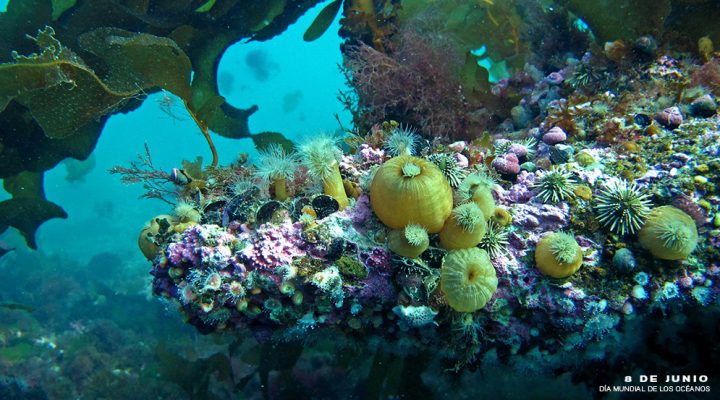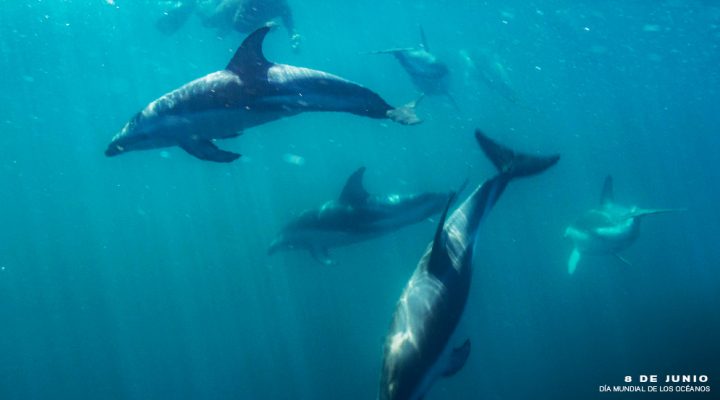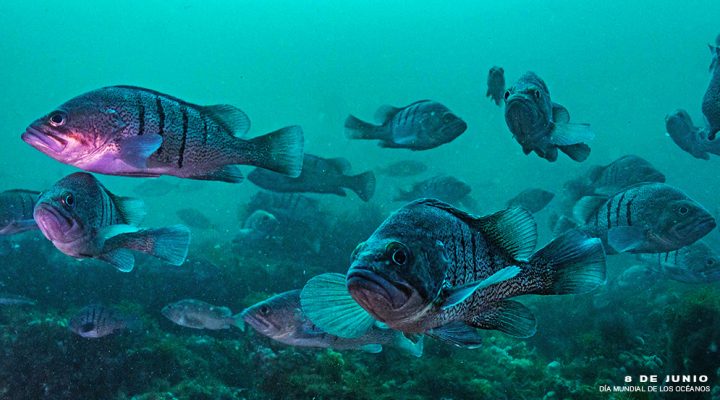WORLD OCEANS DAY
Celebrating the deep blue vastness
On the day dedicated to oceans, CONICET scientists talk about their importance and how to take care of them.
In December 2008, the United Nations General Assembly established the 8th of June as World Oceans Day as a reminder of the major role the oceans have in everyday life and “to unite the world’s population on a project for the sustainable management of the world’s oceans”. Oceans are field and subject of many scientific studies, due to the biodiversity they contain and the relations they establish with other environments. On this occasion, some CONICET scientists, lovers of the vast sea, take the opportunity to dedicate some allusive words to them. They also invite everyone to reflect on the importance of the oceans for life on Earth.
“The oceans are the lungs of our planet since most of the oxygen we breathe comes from them”, says, Martín Brogger, CONICET researcher at the Institute of Marine Organisms Biology (IBIOMAR, CONICET-CENPAT), located in the city of Puerto Madryn (northern Patagonia). “Thanks to them, heat is distributed from the equator to the poles, thus, oceans participate in regulating the planet’s climate. Also, they absorb carbon dioxide from the atmosphere.” Brogger is a specialist in echinoderms, a group of marine animals such as starfishes and sea urchins. He describes marine species that are new for science as he studies the fauna under the deepest Argentine waters.
The CONICET fellow Eugenia Garbarini works at the School of Exact and Natural Sciences of the University of Buenos Aires (UBA, Spanish acronym) analyzing the role of the oceans in the seasonal precipitations of Argentina. As an Atmospheric Science specialist, she is interested in understanding how the sea surface temperature of different ocean regions from the southern hemisphere can modulate changes in the precipitation for each year’s season and in different areas of Argentina. These studies improve the seasonal forecasts for rain in our country. For her, “the oceans are a great source of life and the home to many species.”
“The oceans play an essential role in shaping the life of our planet”, tells Ramiro Ferrari, CONICET researcher at the Sea and Atmosphere Research Center (CIMA, CONICET-UBA). CIMA’s scientists seek to understand the physical processes that dominate the ocean circulation, especially those of the Southwest Atlantic. “They are our planet’s main reservoir of heat, as they store one thousand times more heat than the atmosphere. They also play a very important role in regulating the concentration of one of the main greenhouse gases in the atmosphere: carbon dioxide”, he affirms and explains that the oceans retain an enormous amount of this gas in their depths due to the sinking of the water masses in the polar regions and the sequestration of atmospheric carbon through phytoplankton photosynthesis.
The oceans not only contain and make possible extraordinary biodiversity but also they have a great socio-economic value. Scientists highlight the large number of resources they generate. “The oceans are the main support for many regions since they represent an important energy resource. They provide food and jobs for people, both for fishing activities and for tourism,” they point out.
Why should we take care of the oceans?
“The anthropogenic global warming, as a result of the unprecedented greenhouse gas emission rates of the last century, alters the physicochemical properties of the oceans. Ice melting, rising temperatures and sea levels and ocean acidification are just a few of the changes that have a direct impact on ecosystems and ocean-dependent populations”, says Ferrari.
“Taking care of the oceans is essential to maintain the balance in which we live,” suggests Garbarini. “Being water, oceans react much slower than the atmosphere to changes in the climate system, whether natural or man-made. If the oceans get too hot, their acidity increases and their ability to absorb carbon dioxide from the atmosphere decreases. This could increase global temperature considerably.
Brogger warns that the oceans “hide from our eyes” the impacts and degradation they suffer, unlike forests and other environments that clearly show the damage they undergo due to wildfires or erosion. “The seafloor is affected the most. As we don’t see it, we don’t have much idea of what is going on down there. In order to take better care of them, we need to observe and study them properly,” tells de marine biologist who is co-founder of ProyectoSub, a nonprofit organization that promotes the conservation of marine organisms and environments.
“There are many things we can do in our everyday life to help the oceans,” suggests Garbarini. Scientists agree in which are the main measures: reducing the emission of greenhouse gases (using public transportation or riding bicycles), lowering the use of plastic products, using environmentally friendly products, among other actions. What’s more, “it is imperative to demand comprehensive policies that allow us to take advantage of the ocean’s resources in an efficient and sustainable way,” Ferrari affirms. “We must demand long-term policies that favour biodiversity conservation strategies and that lessen carbon dioxide emissions and mitigate climate change.”
According to Ferrari, celebrating World Oceans Day is a very good opportunity to strengthen social awareness of the different ways in which society can contribute to live in a better place, and thus commit ourselves to the well-being of future generations. In Argentina, “we should especially focus on our portion of the Southwest Atlantic Ocean –says Brogger–. For this purpose, we must have actual scientific-based information that will allow us to promote concrete and effective conservation actions”. Garbarini reflects: “Sometimes, the oceans can seem silent and so far away, and the crucial role they have in our lives may not even seem obvious. Nonetheless, understanding these problems and making them public are the first steps to conserve them and to mitigate the damage on ecosystems, climate and society. ”
By Jorgelina Martínez Grau

